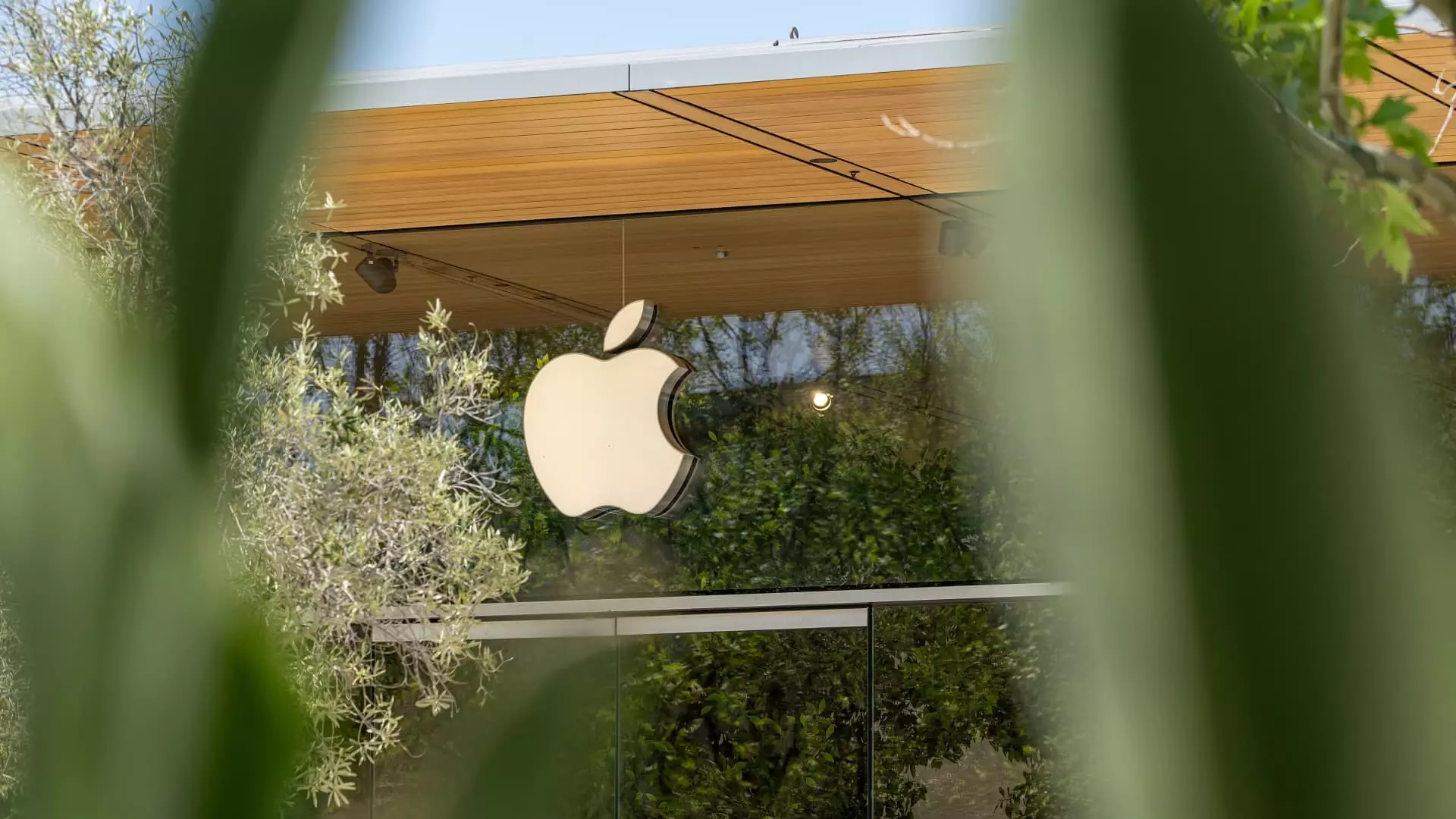In the constantly evolving landscape of digital commerce, a seismic clash is unfolding between two influential giants: Apple and Epic Games. Apple has found itself navigating a precarious legal battleground as it seeks to challenge a recent court ruling that threatens to disrupt its lucrative App Store revenue model. U.S. District Judge Yvonne Gonzalez Rogers has pulled the rug from beneath Apple’s well-guarded business practices, compelling the company to reconsider its stance on in-app payment systems. This latest ruling could herald a pivotal shift in the app economy.
Epic Games, the powerhouse behind the popular Fortnite franchise, has never shied away from confrontation in its quest for a more equitable digital marketplace. The company claims that Apple’s commission structures—described as both excessive and restrictive—stifle innovation and limit payment options for consumers and developers alike. As we delve deeper into the implications of this legal battle, it becomes essential to consider whether such changes can genuinely promote fairness or whether they merely serve as another layer of complexity for app developers and users.
Financial Stakes and Corporate Strategy
Apple’s argument against the recent ruling is steeped in financial concern. The company’s emergency motion highlights the potential for “substantial sums” of losses should the court order stay in effect. The stakes here are monumental, as app developers previously reliant on Apple’s platform for sales now have the chance to redirect traffic to their own payment channels. The recent changes have already enabled developers like Amazon and Spotify to revise their app functionalities, empowering users to purchase services and products externally—away from Apple’s commission structure.
Critically, this signals a pivotal moment for tech companies as they navigate the increasingly complex regulations surrounding digital commerce. Apple’s contention that the ruling will undermine consumer choice suggests that any new competitive dynamics may inadvertently deprive users of certain benefits, such as guaranteed payment security and the continuity of integrated app experiences. Thus, while the goal is to enhance competition, the execution might introduce confusion and fragmentation in the user journey.
Impact on Developers and Consumer Choice
The fallout from this legal showdown stretches beyond Apple and Epic Games; it’s reshaping the app development terrain. Developers stand at a crossroads, now afforded the opportunity to escape the seemingly unholy grasp of Apple’s commission model. With Epic Games offering tools to facilitate payment links, developers gain increased autonomy. Yet, this newfound independence also raises questions about the sustainability of such changes.
Tim Sweeney, Epic’s CEO, has publicly declared that this developments force Apple into a position of competition—a stark juxtaposition to the previously perceived monopoly the company held. However, the ramifications of this shift are not straightforward. While competition may drive pricing down for consumers, it also risks introducing added complications regarding payment security and user data privacy. By redirecting payment processes away from the App Store’s established protocols, developers must assume greater responsibilities and manage new vulnerabilities.
Moreover, with the introduction of payment links comes the potential for widespread inconsistency in user experiences across apps. A world where each developer adopts a unique payment approach could hinder the fluidity of transactions, ultimately complicating the user experience. Progressive competition should ideally simplify aspects of digital commerce, not obfuscate them further.
The Ethical Dilemma of Corporate Decision-Making
Beyond the technicalities, an ethical examination reveals the gravity of Apple’s alleged misleading behaviors in court. Judge Rogers’s referral hints at a concerning pattern of corporate practices that, if true, cast doubt on Apple’s commitment to transparency. The implications of such revelations extend far beyond legal repercussion; they speak to a broader narrative about corporate accountability in an age where consumer trust is paramount.
As Apple contemplates its appeal, it stands at a pivotal juncture. The company can either take a proactive stance, adapting to the emerging landscape and embracing changes that promote a more equitable environment for developers and consumers, or it can resist, perpetuating a cycle of litigation that ultimately risks alienating its user base. In a world that increasingly prioritizes ethical practices and social responsibility, how Apple navigates this crisis will not only determine its immediate financial trajectory but also shape its legacy in the tech world.
In the thick of this unfolding saga lies a critical question: will these transformative tides reshape the app ecosystem in a way that genuinely empowers all stakeholders, or will it merely serve as a catalyst for further contention and confusion? Only time will tell as this digital drama unfolds.

